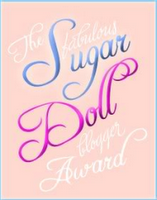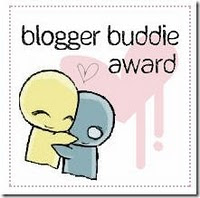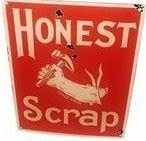Before we start, I'd like to refer to my blog post about what I'm looking for in a novel, which I'm sure is different for each reader. It applies not only to novels I read for pleasure, but also to children's books I'm reading to develop my writing skills. To me, a book for children should be of such quality that it also appeals to me as a children's writer.
#1: How To Train Your Dragon, by Cressida Cowell
Publisher: Little, Brown and Co.
Year of publication: 2003
(1st U.S. edition: 2004)
# of chapters: 19 + epilogue
# of pages: 214
Genre: Fantasy
What I didn't like:
In short, the bathroom humor, overdone insults, and gross factor might appeal to a young boy, but it wasn't really my thing. The writing could have been better, to my humble opinion. There was a lot of telling and the plot was predictable at times.
The setting and characters were original: a Viking boy training a pet dragon. Now that's a first!
#2: 39 Clues #2: One False Note, by Gordon Korman
Publisher: Scholastic
Year of publication: 2008
# of chapters: 21
# of pages: 174
Genre: Adventure/Mystery
What I didn't like:
I felt like I was reading someone's very first book. The POV shifts around from one character to another constantly within the same scene, which makes it hard for the reader to connect with any of them. Using a variety of dialogue tags seems like a good idea for a beginning writer, but it can be quite distracting for the reader. I counted eight different ones in one random page I picked ("Nellie translated in a whisper", "Amy hissed in surprise", "she replied with a shrug", "Nellie guessed", "she added," Amy suggested timidly", ...) The characters are not consistent with the first book. Amy is no longer insecure and stuttering, all of a sudden. But the cat is still just as annoying as in the first book. (See my review of 39 Clues # 1 for details.) I'd be very surprised if the historical elements about Mozart and Marie-Antoinette were accurate. To my opinion, a book is either historical fiction or it's not; it can't be somewhere in between.
One Positive Point:
The plot was intriguing, and looking for clues is always fun. As a bonus, kids can go online and search for more clues by solving puzzles. I couldn't access the games, because whoever read the book before us at the library had already created an account using the unique passcodes included in the book.
#3: Walk Two Moons, by Sharon Creech
Publisher: Harper Collins
Year of publication: 1994
# of chapters: 44
# of pages: 280
Genre: Realistic Fiction
What I didn't like:
The characters were not likable to me, especially Phoebe, the main character's friend, which I found very annoying. Even the main character was hard for me to relate with. All the adults in this book had major flaws and no strong moral values. The plot was slow, filled with unnecessary mystery, and didn't make sense to me at all (for example: a teen girl telling her story about her friend to her grandparents almost nonstop for a six-hour car ride, Grandpa letting his inexperienced granddaughter drive his truck on a dangerous mountain road, a teacher reading the students' journals in front of the class, ...). The ending disappointed me. I feel I've been cheated, led to believe one thing when the narrator knew all along it was something different. I found this book in the MG section of the library, but it had a YA feel to it, with heavy themes such as a mother leaving her family, death, betrayal, and the mention of Grandma running away with the milkman for three days because Grandpa was swearing too much. Um... Okay! Sorry, not for me.
One Positive Point:
The writing itself was good, and I felt like I was in the hands of an experienced writer.
#4: Skellig, by David Almond
Publisher: Delacorte Press
Year of publication: 1998
# of chapters: 46
# of pages: 182
Genre: Fantasy
What I didn't like:
I found the plot very strange, and the characters even stranger. The book is about a very untypical angel who eats Chinese food, drinks beer, and never smiles. The little girl doesn't sound like a child, more like a mature adult, but I suppose that's part of her personality. Still, I found it hard to believe she could talk like she did. The main character, a young boy, was so affected by his baby sister's health problems that he couldn't go to school and was kept home for several weeks. I felt everything was a little overdone, hard to believe. There is a lot of repeated mannerisms, such as "He laughed but didn't smile" told the same exact way several times throughout the book. Maybe it's supposed to be there for effect, but I found it irritating.
One Positive Point:
I learned something about owls and birds. Oh, and there was something about listening deep inside that caught my attention at some point, and left me feeling this wasn't such a bad book after all.













































4 comments:
Have to say I've only heard of the first book. Love your take on why the books work and don't work... your book reviews are awesome:)
Tania
Annie! How to make friends and influence people hahaha!!! Tania is so right! Your book reviews are second to none!
I can't wait to get published so you can review my book :) Hey! What a great idea! You could do some book reviews for unpublished, up-and-coming authors! *hint hint* :D
Awww, thanks Tania and Kurt! *beam*
Good idea, Kurt. Maybe I'll review your not-yet-published books some time soon. :)
I find I am much more critical of MG books. Maybe I am just not the target audience.
Post a Comment